# Unlocking Spinal Mobility with a Simple Broomstick Technique
Written on
Chapter 1: Understanding the Thoracic Spine
The human spine consists of 24 vertebrae, divided into three regions: 7 cervical in the upper area, 12 thoracic in the middle, and 5 lumbar in the lower section. The thoracic spine plays a critical role in safeguarding the spinal cord and thoracic organs while also supporting the ribs. It actively participates in various movements, including flexion, extension, and rotation.
Given the intricate anatomy of the thoracic spine and ribs, improper support can lead to significant issues. Unlike other sections of the spine, the thoracic region has limited mobility due to the ribcage's presence, making it particularly vulnerable to stiffness from prolonged sitting.
As a teenager, I struggled significantly with tightness in this area. Spending long hours in classrooms and studying afterward left me largely inactive. Over time, this resulted in such tightness that I needed to consult a physiotherapist to regain mobility in my shoulders and spine.
Among the exercises I was given, the most surprising yet effective involved a broomstick. Initially, I chuckled at the thought, but this unassuming tool proved essential for alleviating my upper body tightness.
Today, I aim to share these transformative exercises with you, allowing you to experience relief in your own home. You don’t need to visit a trainer or specialist to see remarkable improvements in joint and muscle health. Simply commit to the straightforward program outlined below, and you can expect great results!
Mastering Spinal Mobility the Unconventional Way
Before you begin, please consult a healthcare professional if you have a history of serious shoulder or spinal injuries, or chronic conditions that could pose risks during exercise. These movements are generally accessible to most individuals, but it's vital to ensure you're prepared.
The following exercises target three common issues associated with the thoracic spine:
- Limited rotation
- Inability to fully extend (often resulting in a hunched posture)
- Tightness or knot-like sensations between the shoulder blades
By addressing these areas, you will enhance the mobility and strength of your mid-spine. As you practice the movements, focus on maintaining a slow pace, achieving a full range of motion, and taking deep breaths. Training your spine requires patience and discipline, but the benefits—such as injury prevention and improved functionality—are worth the effort.
As with any exercise program, listen to your body and avoid pushing through pain levels beyond a 3–10 on the pain scale. If you encounter difficulties with any movement, take a break and revisit it later. For optimal results, incorporate this routine into your schedule at least 3–4 times per week, ideally daily, to enhance productivity and reduce discomfort.
Without further delay, let’s unlock that stubborn spine!
Exercise 1: Half-Kneeling Spinal Rotation
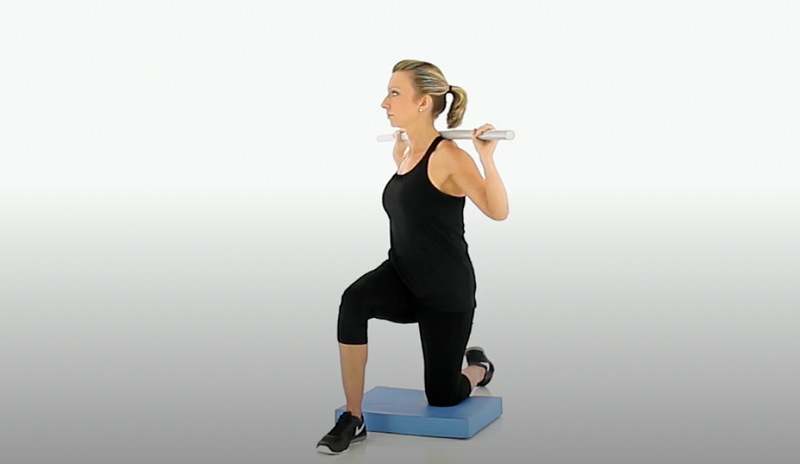
Application: 8–10 reps per side
Instructions: Begin in a half-kneeling position with the dowel resting against your upper back. Rotate back and forth within your pain-free range of motion, holding each end position for 1–2 seconds. Keep your lower body stable to isolate mobility in the thoracic spine. Make sure to perform this on both sides, even if one feels tighter.
Exercise 2: Dowel Passovers
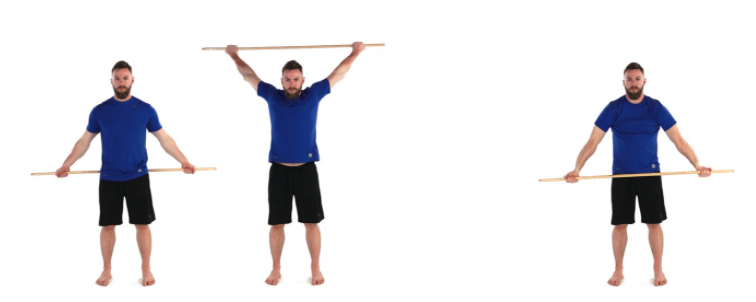
Application: 8–10 reps
Instructions: Start with the dowel in front of you, then slowly lift it over your head and behind your back. If you have limited mobility, begin with a wide grip and gradually narrow it as you feel comfortable (never exceed your range!). Maintain a neutral neck and pelvis while engaging your core and glutes. Remember to breathe and squeeze your shoulder blades together.
Exercise 3: Thoracic Dowel Mobilization
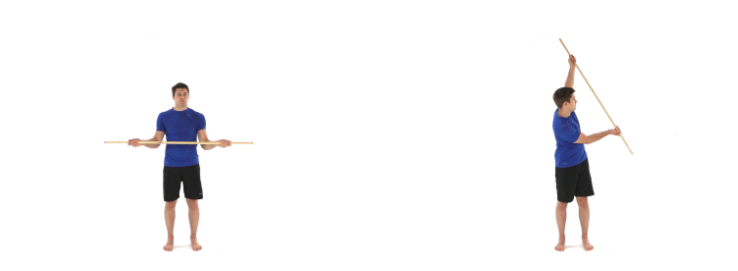
Application: 8–10 reps per side (2x per week)
Instructions: Hold a broomstick in front of you with your elbows bent at 90 degrees, palms facing up. Rotate your trunk to lift one hand behind your body, exhaling as you initiate the movement and inhaling as you return. Complete the reps before switching sides.
Exercise 4: Prone Overhead Press
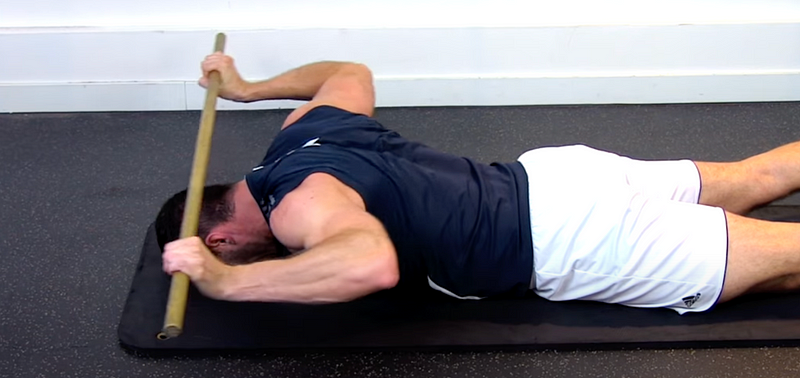
Application: 10–15 reps
Instructions: Lying face down, grasp the dowel with a grip slightly wider than shoulder-width and extend it overhead. To complete a rep, bend your elbows and lower the dowel until it reaches shoulder level. Hold for 2 seconds before lifting back overhead. Adjust the range of motion according to your comfort level.
Exercise 5: Overhead Squat
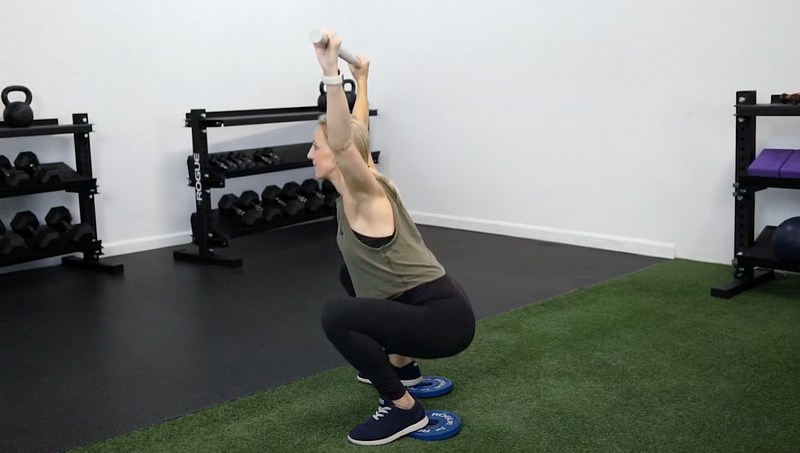
Application: 10–12 reps
Instructions: This final exercise emphasizes full-body mobility. Perform a squat while keeping the dowel behind your head to maintain spinal extension. If you struggle with hip and ankle mobility, consider using a small riser to facilitate the squat. Expect to practice this one for mastery!
If you're interested in more exercises, check out my comprehensive library of rehab routines and movement guides on my website. I've also launched one-on-one rehab sessions to help you overcome any obstacles to a fully functional life!
In Conclusion
If you're experiencing back stiffness and discomfort, using a broomstick for thoracic spine mobilization is an excellent starting point. Given its pivotal role in overall musculoskeletal health, caring for your thoracic spine can significantly impact your well-being. If visiting a clinic or chiropractor feels daunting, don't worry! You already have the tools to begin taking care of your spine today.
Here’s to spending less time dealing with stiffness and more time enjoying life to the fullest!
— David Liira Kin
Overcoming physical barriers & fostering pain-free living through movement.
[www.davidliirakin.com](http://www.davidliirakin.com)